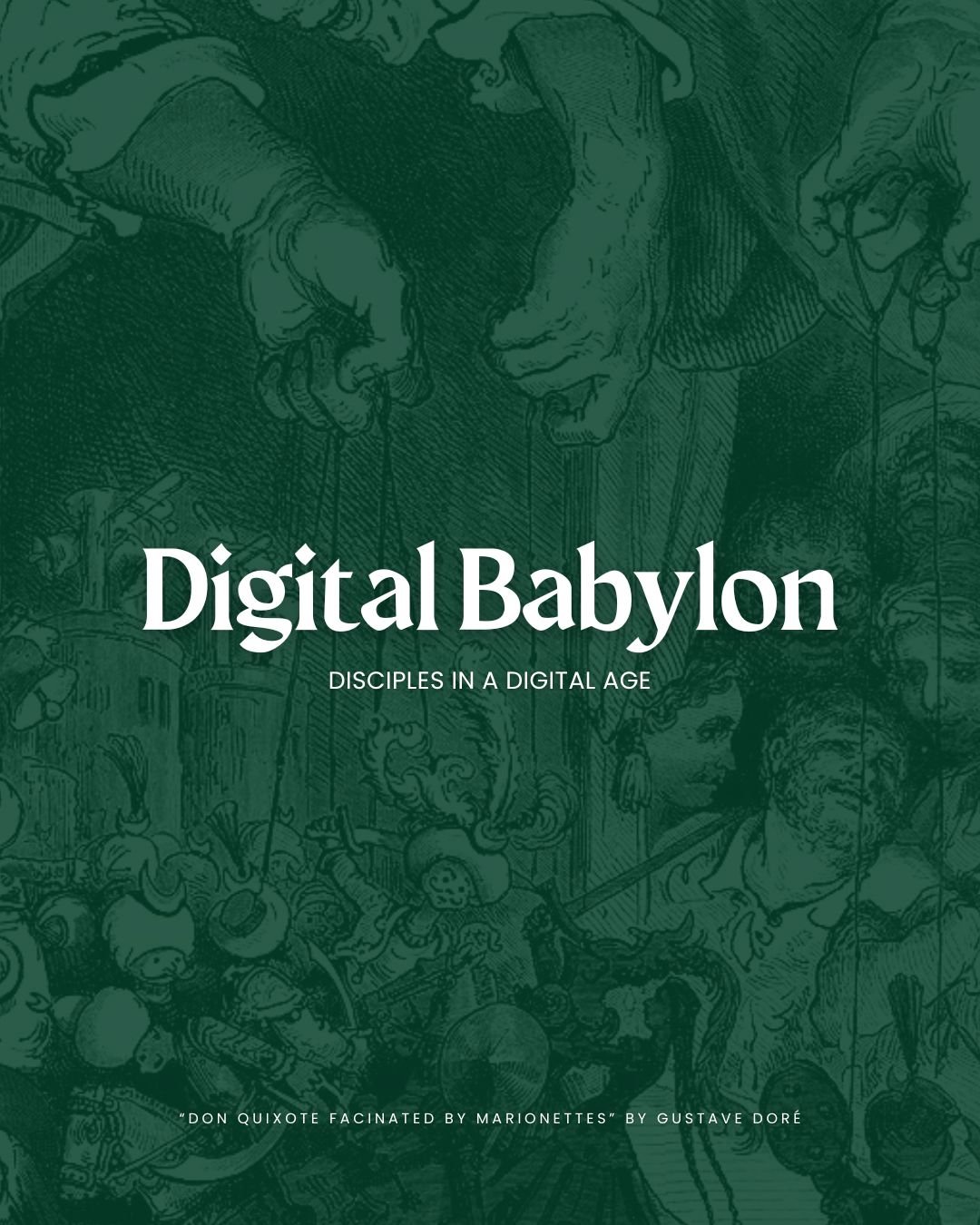Digital Babylon
Technology is all around us. Whether you have grown up around or adapted to it, it is hard to imagine our lives before social media, google, and online shopping. As Jesus followers, we are called to plant gardens, build houses, grow families, and seek the prosperity of the city, yet we are still exiles (Jeremiah 29). Which begs the question, how do we engage with technology as exiles in digital Babylon? That is the question we will explore in the first two months of 2025. Our series Digital Bablyon: Disciples in a Digital Age aims to create deeply formed disciples who engage with technology intentionally.
The rise of artificial intelligence and digital advancements often tempt us to reduce our humanity to mere data processing, but this is a narrow view. Our faith insists on the value of the human body, emphasizing that being human is more than just thinking or problem-solving; it is about being embodied. From Genesis, we learn that being made in the image of God means we are inherently valuable, entrusted with a royal task, and capable of embodying love. Our bodies are not just vessels; they are integral to our identity and our ability to express divine love.
In the digital age, the constant influx of information can easily distract us from our spiritual journey. The overwhelming noise can erode our faith by diverting our attention from meaningful questions and reflections. To navigate this, it's essential to take intentional breaks from digital devices and create space for contemplation and spiritual growth. By doing so, we can engage with our doubts and questions more meaningfully, allowing us to focus on our relationship with God and our spiritual development.
In this digital age, pornography has become alarmingly accessible, affecting individuals' perceptions of intimacy and relationships. This calls for a societal shift in understanding and addressing these issues, recognizing the profound impact it has on our youth and communities. Jesus' Sermon on the Mount urges us to look beyond commandments and examine the deeper issues of the heart. This message is not about condemning sexual desire, but about valuing the sacredness of sexual relationships.
Our daily lives are filled with distractions, especially from digital devices that always seek our focus. Research indicates our attention spans are getting shorter, hindering meaningful connections with God and others. To cultivate holy attention, we must intentionally resist digital distractions. This involves practical steps like turn off notifications, use focus features, set app limits, and create time without devices. Practicing silence and solitude helps us be present with God, allowing us to slow down, reflect on our thoughts and feelings, and deepen our awareness of His presence.
In today's digital age, technology offers both opportunities and challenges for managing finances. While there are numerous tools available to help us budget and save, the same technology can also lead to increased debt and lifestyle inflation. Social media and targeted ads often tempt us to spend beyond our means, creating financial pressures that can distract us from our spiritual goals. As faithful disciples, it is crucial to critically assess how technology influences our financial decisions and spiritual lives.
The challenge we face is not just about managing our screen time but understanding how these digital interactions are molding us. Technology is not neutral; it has the power to transform us physically, mentally, spiritually, and relationally. We are living in a "digital Babylon," a world with foreign customs and gods, where remaining faithful to our beliefs requires intentionality and discernment.


